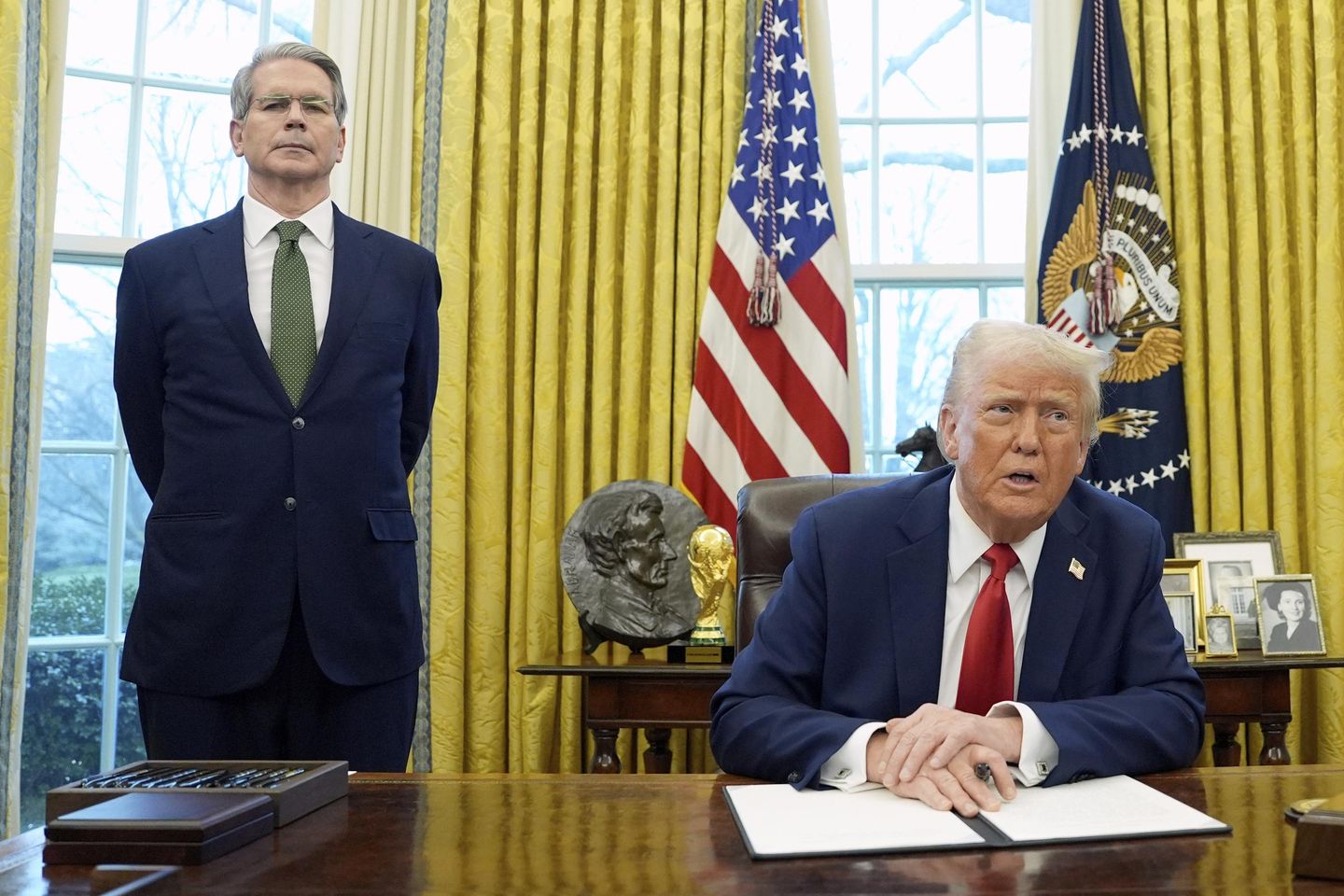
Treasury Secretary Scott Bessent on Wednesday said the U.S. and China can reach a “big deal” if Beijing is serious about rebalancing its economy toward satisfying domestic demand instead of flooding the world with cheap goods.
“Let’s do it together. This is an incredible opportunity,” Mr. Bessent said in a keynote address to the Institute of International Finance.
He talked up an agreement as President Trump said Wednesday there is “active” work on striking a “fair deal” with Beijing to bring down tit-for-tat tariff rates that now exceed 100% on both sides.
“Everything’s active. Everybody wants to be a part of what we’re doing. They know that they can’t get away with it any longer, but they’re still going to do fine, and we’re going to have a country that you can be proud of,” Mr. Trump said on the North Lawn of the White House.
China’s Foreign Ministry, meanwhile, said Wednesday its “doors are open, if the U.S. wants to talk.”
“If a negotiated solution is truly what the U.S. wants, it should stop threatening and blackmailing China and seek dialogue based on equality, respect and mutual benefit,” ministry spokesman Guo Jiakun said. “To keep asking for a deal while exerting extreme pressure is not the right way to deal with China and simply will not work.”
SEE ALSO: Wall Street rallies on Trump’s softer approach to Powell, China
An administration official said any reduction in U.S. tariffs on Chinese goods will not be unilateral and would have to be in concert with discussions and negotiations with China.
Still, the softer tone toward China cheered Wall Street, which rallied into positive territory.
The Dow Jones Industrial Average was up more than 400 points in mid-afternoon trading, while the S&P 500 and Nasdaq surged after a big selloff to start the week.
Investors have sought out Mr. Bessent, in particular, as a voice of calm while Mr. Trump imposes a blanket 10% tariff on imports and heftier levies on dozens of countries that sell plenty of products to U.S. consumers but don’t buy nearly as much from American producers.
Those large reciprocal tariffs have been paused for 90 days to give space for negotiations.
“That status quo of large and persistent imbalances is not sustainable,” Mr. Bessent said.
SEE ALSO: Trump: U.S. in ‘active’ trade talks with China
The secretary said China, in particular, needs a rebalancing. The U.S. wants Beijing to move away from its practice of dispatching cheaply made goods across the world, saying it undercuts manufacturing sectors elsewhere.
“Everyone knows it needs to change, and we want to help it change,” Mr. Bessent said. “China can start by moving away from export overcapacity and supporting its own consumers and domestic demand.”
Mr. Bessent struck a collaborative tone as part of a wide-ranging speech in Washington, where the International Monetary Fund and World Bank are conducting spring meetings.
“I wish to be clear — America First does not mean American alone,” he said. “To the contrary, it is a call for deeper collaboration and mutual respect among trade partners.”
Tariffs are a tax or duty paid by importers on the goods they bring in from foreign markets.
Foreign countries don’t pay the tariffs directly to the U.S. Treasury. In many cases, U.S. companies will pay the levies, and they might pass on at least some of the cost to consumers through higher prices.
But Mr. Trump says tariffs are a great way to force companies to return to America or keep their operations in the U.S., employ American workers and create revenue to fund domestic programs.
“We are making a lot of money in this country,” Mr. Trump said Wednesday. “This country is not going to be losing money on trade anymore. We are losing $2 trillion a year on trade. Now we’re going to be making money, a lot of money. So that’s very good.”
Nations such as Japan and India are working to cut deals that would reduce trade barriers and tariffs.
“We’re making progress across the board. It’s a little bit too early to prejudge, to say what any of these deals is going to look like,” Vice President J.D. Vance said Wednesday while traveling in India.
He said Mr. Trump is trying to correct a trade system that “has become fundamentally imbalanced.”
As it stands, China is the toughest nut to crack.
Mr. Trump imposed a 145% tariff on Chinese goods. Beijing retaliated by imposing a 125% levy on U.S.-made products.
“There is an opportunity for a big deal here … if China is serious [about] less dependence on export-led manufacturing growth and a rebalancing toward a domestic economy,” Mr. Bessent said.
Earlier this week, Mr. Trump said tariffs against China would come down from their sky-high rates after negotiations.
“It’ll come down substantially. But it won’t be zero,” Mr. Trump said Tuesday in the Oval Office. “I think we’re going to live together very happily, and ideally work together.”












